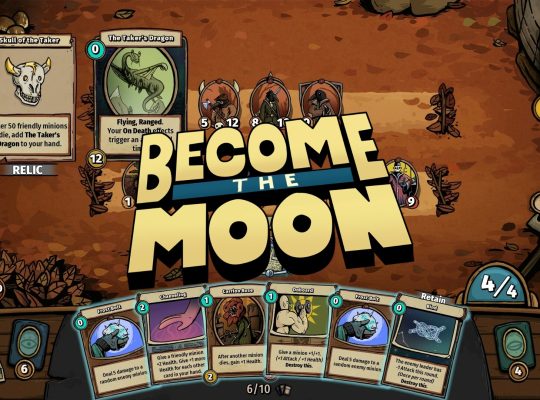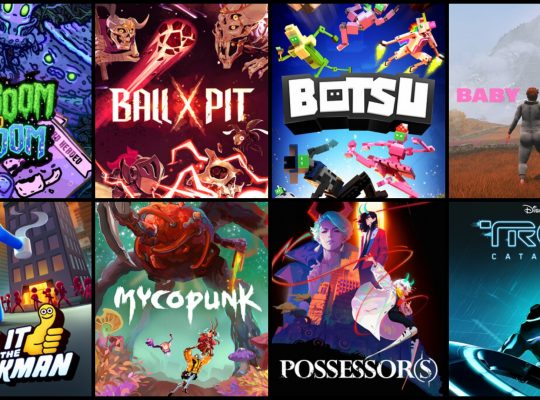- DEVELOPER: Oxide Games
- PUBLISHER: Xbox Game Studios
- PLATFORMS: PC, Xbox One, Xbox Series X/S, Game Pass
- GENRE: 4X Grand Strategy
- RELEASE DATE: September 24, 2024
- STARTING PRICE: 59,99 €
- REVIEWED VERSION: PC
Ara: History Untold is a refreshing, original take on the classic 4X Civilization-style gameplay, offering a new spin on the genre with some great innovations, and is firmly rooted in historical realism. It takes players through three distinct eras: Prehistory, the Middle Ages, and the Age of Machinery. You start by choosing a leader who represents your civilization, and you’re tasked with building a memorable and dominant nation.
Let’s clear something up right away, Ara: History Untold involves a lot of micromanagement. There’s plenty of clicking, observing, and strategic thinking. This isn’t your typical Civilization game, though it does manage to capture that “just one more turn” feeling. If, like me, you enjoy long marathon sessions, Ara delivers that experience pretty well.
That said, don’t expect anything groundbreaking. The game is trying to carve its own niche, but it’s far from perfect. Its mixed reviews on Steam speak to some real issues — especially the micromanagement, which only intensifies as you hit the mid-to-late game. Things can get messy, and this isn’t a game for everyone. So, be aware of what you’re getting into when considering Ara: History Untold.

A Deep Economic System
Each leader offers a different way to play the game, and the options feel fresh. Some of the notable characters include historical figures like Hildegard von Bingen, offering a research-focused path, while others provide military or cultural advantages. This diversity keeps the early game fun and varied, boosting the replayability of the game. Even after multiple playthroughs, each start can feel distinct thanks to the different leaders and playstyles available. I often found myself playing as Genghis Khan in multiple playthroughs, drawn in by the allure of exploring the game’s military aspects.
One of the standout features of Ara is its highly detailed economic system, which offers much more depth than traditional 4X games. You don’t just gather resources passively — you’re actively deciding what to produce in your workshops, granaries, and other buildings. This adds a layer of strategic micromanagement as you plan how to grow your cities and manage resources.
At the start, the economy seems simple: you gather basic resources like food, wood, and wealth, and use them to build improvements. But as you progress, crafting becomes a critical part of the game. Consumer and strategic goods like jewelry and tractors can be produced, which dramatically boost the efficiency of your cities. However, as the game advances, managing all these production lines can become overwhelming. While the resource system adds depth, the micromanagement of industry becomes time-consuming, especially in the late game. It’s not uncommon to find yourself focusing more on running factories than making high-level strategic decisions.

A Strategic Yet Exhausting Challenge
The strategic aspect of Ara goes beyond the economy. Combat, while automated, is another key feature. When two warring factions meet, their units will automatically engage in battle. While the military aspect isn’t the game’s strongest point, it offers enough depth to keep things interesting. Armies can be organized into formations, like Shield Walls, and their abilities depend on the mix of units you assign to each formation. The game lacks more intricate battle mechanics, like factoring in terrain advantages or allowing for strategic retreats and re-positioning.
On top of that, the balance of military units is questionable. It’s odd to see a group of outdated units easily take down a fortified city defended by advanced troops like rocket launchers. Similarly, the tech requirements for building advanced units are frustratingly complex. You’ll unlock a certain tech only to realize you need fuel, a factory, and several other steps before you can actually build anything.
Diplomacy, while standard, has a nice touch with its merchant system, limiting the number of imports you can access. This brings a layer of strategy to trade and resources, but it could benefit from more depth. Religion and leader interactions are decent but don’t quite stand out compared to the game’s other elements. Additionally, interacting with minor tribes is mostly limited to random events. Army management is also clunky, with units only able to merge into formations while in reserve.
The game’s tech system is unique, allowing you to skip certain technologies in favor of advancing faster. However, the rapid pace at which you unlock new technologies can make it hard to keep up. You may just have started producing a new resource when a better alternative becomes available, making your previous efforts feel wasted.

Flaws in the Late Game
While Ara offers a compelling experience overall, it does suffer from some issues, especially in the late game. The biggest flaw is the excessive micromanagement required for industries. As your empire grows, the sheer number of buildings and resource slots becomes overwhelming. You’ll find yourself scrolling through cities, manually checking if new resources are better suited for specific buildings, which slows down the game considerably.
The resource management system is both a strength and a weakness. On the one hand, it adds a deep strategic layer to the game, especially with rare resources that encourage trade. On the other hand, obsolete resources have no use, leaving them to clutter up your storage. Similarly, city stats like happiness, health, and security can degrade gradually without you noticing, resulting in sudden negative effects that feel frustrating rather than fair.
The building menu doesn’t help, either. It’s poorly organized, and finding specific buildings becomes a frustrating scavenger hunt. There’s a color-coding system, but it’s not intuitive at all. Submenus would have been far better, allowing us to sort by population, amenities, or military needs. The AI, meanwhile, becomes hyper-aggressive in its expansion, grabbing land rapidly, even when they don’t seem to have many cities. In general, AI is just barebones.

Before The Conclusion
Ara doesn’t offer much in terms of customization when it comes to world-building or map design. The procedurally-generated worlds are serviceable, but the maps lack in variety and detail. For instance, why are the animals always stationary? Why isn’t there any migration? And why is using the seas and oceans almost irrelevant? The game is full of small quirks that can become frustrating over time. Performance issues also crop up, particularly in the late game and on larger maps, where the game struggles to maintain smooth frame rates as the world expands.
One surprising feature is the knockout mechanic, where players with the lowest prestige are eliminated at certain stages. This felt like an odd choice, as cities disappear without a trace. While this feature can be disabled for human players, it ultimately limits the diplomatic complexity of the late game by reducing the number of factions in play. Similarly, the government systems are rather bland, offering passive bonuses without introducing new strategies or meaningful choices.
As for victory conditions, there aren’t any traditional ones like military or scientific victories. Instead, the goal is to accumulate prestige points through a mix of achievements, which feels a bit vague. The religious system also feels underdeveloped; while you can spread your faith through missionaries and oracles, the impact of these actions isn’t clearly communicated.

Verdict
Visually, Ara is a beautiful game, with detailed graphics that add a lot of charm to the world. Whether you’re zooming in on cities or following roads between civilizations, the graphics are top-tier for this genre. Road-building is functional, and monuments inside the game look amazing.
At its core, Ara is an economic management game with 4X elements, and it borrows heavily from games like Anno 1800 while mixing in ideas from Civilization and Humankind. However, its over-reliance on micromanagement and some UI weaknesses hold it back from reaching its full potential. Despite these issues, Ara is a fun and challenging game, especially for those who enjoy managing complex systems.
It offers plenty of replayability thanks to its diverse leaders and flexible strategies. With some post-launch updates and additional content, it could become a strong competitor to games like Civilization and Humankind. For now, it’s an enjoyable experience, but one that could benefit from some refinement in its more tedious aspects.
Review copy provided by the publisher
3.3









